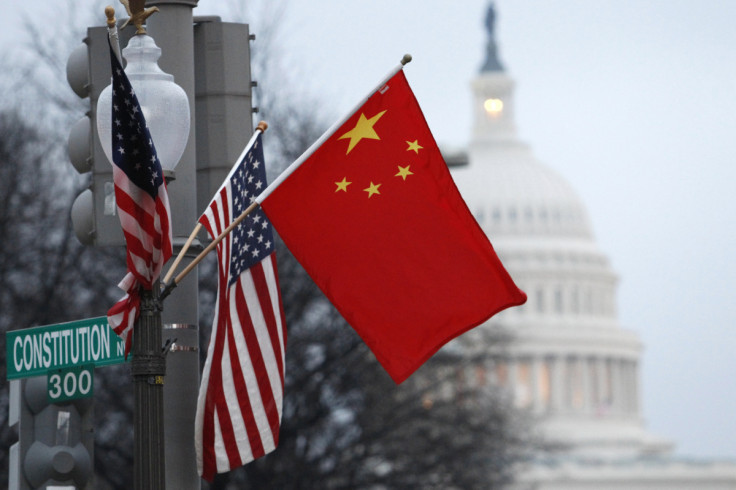China, Cuba Outflank Washington With Spy Outpost On US' Doorstep: Reports
KEY POINTS
- NSC's John Kirby initially said he couldn't comment on the matter but later said reports were "not accurate"
- Cuba denied the "totally false and unfounded" report
- The U.S. has a naval base in Cuba where a prison was recently criticized by a UN body
China has reportedly reached a deal with Cuba to set up a base on the island that will allow it to spy on the United States in what is deemed as a move to challenge Washington's military presence globally.
The Asian powerhouse has reached a confidential agreement with Cuba to establish a spying facility on the island in a billion-dollar deal that would see China gaining a foothold on its eavesdropping activities targeted at the U.S., officials with knowledge of the sensitive intelligence revealed, as per the Wall Street Journal.
John Kirby, National Security Council spokesperson, told WSJ Thursday morning that he could not comment "on this specific report" but the Biden administration was "well aware" of China's efforts "to invest in infrastructure around the world that may have military purposes, including in this hemisphere."
CNN reported citing a source with knowledge of the intelligence that the U.S. found out about the plan in recent weeks, but it was unclear if China already started construction of the facility.
Kirby has since changed his statement, telling CNN Thursday that the reports were "not accurate."
"We have had real concerns about China's relationship with Cuba, and we have been concerned since day one of the Administration about China's activities in our hemisphere and around the world. We are closely monitoring it and taking steps to counter it. We remain confident that we are able to meet all our security commitments at home and in the region," Kirby said, according to CNN.
In a Thursday report, Politico cited two unnamed sources who said they couldn't confirm if an agreement was reached between the two parties. However, they shared that China was in direct talks with Cuba regarding spying on the U.S.
Carlos Fernández de Cossio, Cuba's deputy foreign minister, said in a statement to Politico that the WSJ report was full of "totally false and unfounded information," adding that the island rejected foreign military presence in its vicinity.
The Cuban Embassy did not respond to Politico's question about talks of a spying facility with China.
The latest developments in the U.S.-China relations come barely months after an alleged Chinese spy balloon traversed across continental United States before it was shot down by the U.S. Air Force. That incident poured cold water on efforts to warm up an already tense relationship, leading to Secretary of State Antony Blinken postponing his planned visit to Beijing. He is set to go to Beijing in the coming weeks, reports said, indicating some thaw in the relationships between the world's two largest economies.
A Throwback to the Cuban Missile Crisis
The WSJ report also comes decades after then-president John F. Kennedy's government was plunged into the missile crisis in Cuba that left the world in fear for 13 days, as per the JFK Library.
A U.S. U-2 spy plane photographed nuclear missile sites that the Soviet Union was constructing in Cuba, which is located about 100 miles from the U.S., in October 1962. The U.S. placed a naval blockade around Cuba as the JFK administration sought to prevent the Soviets from increasing their presence on the island.
Soviet leader Nikita Khrushchev agreed with the U.S. that a nuclear war would be devastating to both sides and reached a deal for the Soviets to dismantle their nuclear missile sites in Cuba. However, they continued constructing military facilities on the island.
Former President Donald Trump put Cuba on the list of countries that allegedly sponsored terrorism. The Cuban government has rejected the inclusion and expressed its opposition to U.S. officials during an anti-terrorism meeting in April, Reuters reported.
Cuba has become a touchy subject for U.S. security experts, especially following reports of the "Havana syndrome" that emerged in 2016.
Earlier this year, multiple American agencies concluded that it was "very unlikely" the mysterious illness, which caused various symptoms such as nausea and migraine among U.S. personnel in the Cuban capital, was caused by a foreign player.
U.S. Bases Across the World Will Get Renewed Attention
With the latest reports on Cuba's supposed deal with China, it appears that the U.S. is getting a mirror view of how it established military bases globally in the past years.
Even with the American pullout of troops from Afghanistan in 2021, it is estimated that the U.S. has around 750 military bases across 80 or more countries around the world.
In Cuba, the U.S. has a naval base in Guantanamo where a prison is operated by the U.S. Defense Department.
The said prison has been the subject of recent criticism by the United Nations working group on arbitrary detention after the U.S. and other countries allegedly violated the human rights of a Saudi man detained for his alleged role in the 2000 bombing of the USS Cole in the port of Aden.

© Copyright IBTimes 2024. All rights reserved.






















